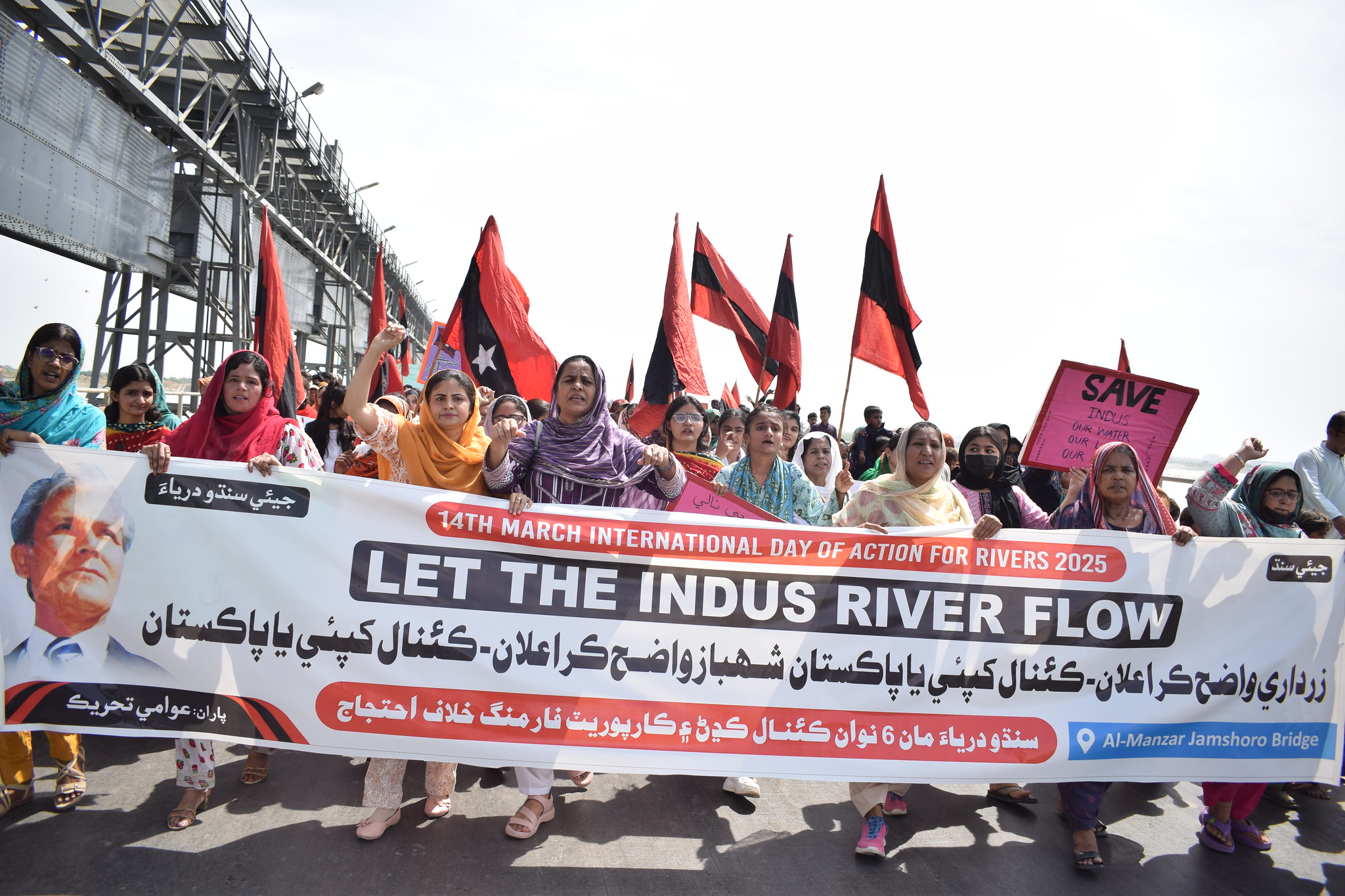Free-flowing rivers are integral to supporting life on Earth. They bolster biodiversity, regulate the climate, provide fresh water, and sustain cultural traditions. However, destructive extractive and infrastructure projects threaten rivers, altering their flow, starving plants and wildlife, degrading water quality, and imperiling the ways of life of countless riverine communities. On March 14, river defenders from around the globe gathered for the 28th annual International Day of Action for Rivers. While separated by geographic and political boundaries, and motivated by unique challenges, participants united around this year’s theme, Our Rivers, Our Future, affirming that defending people’s rights to social, economic, and cultural well-being is deeply interconnected with healthy, thriving river ecologies.
This year, activists organized over 120 events in more than 30 countries with thousands of people celebrating their rivers, and uniting against dams, water diversions, water privatization, and pollution by launching rallies, holding lectures, taking to social media, participating in traditional water ceremonies, and more. The diversity of the events reflected the myriad challenges facing riverine communities worldwide–some gathered to defend the economic security granted by rivers; others convened to highlight the integral role that rivers play in supporting specific spiritual and cultural traditions. Nearly every event reflected participants’ desire to have a say in decisions that affect their local rivers and in turn, their lives.
The International Day of Action Against Dams and For Rivers, Water, and Life was adopted by participants of the first international meeting of People Affected by Dams in March 1997 in Curitiba, Brazil. Representatives from 20 countries decided that the annual International Day of Action would take place on March 14 – Brazil’s Day of Action Against Large Dams. Nearly 30 years later, it’s still going strong. Here are some highlights:
Community Movements to Save the Indus River, Pakistan
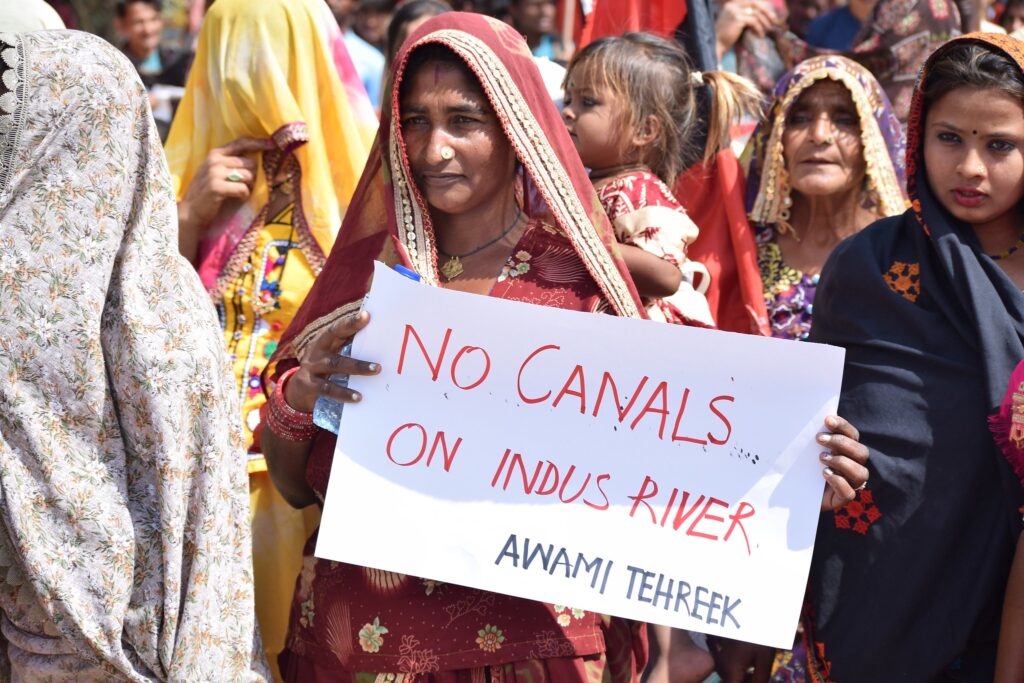
Several prominent events during this year’s Day of Action were convened by community rights advocates and allies in Pakistan to oppose the construction of canals and dams along the Indus River. Marches and rallies were organized to highlight the severe environmental, economic, and cultural consequences of reducing water flow on the Indus River, the only major water source for Sindh, the third largest province in Pakistan.
The Indus currently sustains agriculture, fisheries, and drinking water needs in the region and occupies a central role in local histories, cultures, and religions. Residents of the area know that any further dam developments on the Indus as well as plans to divert water to corporate farming operations, will exacerbate current water shortages, undermining local economies, public health, and cultural traditions. This is based on their observations of the impacts of existing water diversions, which have already led to the destruction of mangrove and riverine forest ecosystems, threatening the existence of diverse fish species and delta wildlife in the area. Now, experts are also concerned about financial loans provided by the World Bank to enable the building of a cascade of dams along the Swat River, including the Madhyan Dam.
Participants in the Day of Action events asserted the critical importance of ceasing current and future canal and dam construction projects on the Indus River, creating a fair and transparent water governance plan that ensures peoples’ rightful share of Indus water, implementing restoration measures to protect the Indus Delta, and recognizing the Indus River as a natural and cultural heritage site that must be protected for future generations.
Mun River, Ubon Ratchathani Province, Thailand
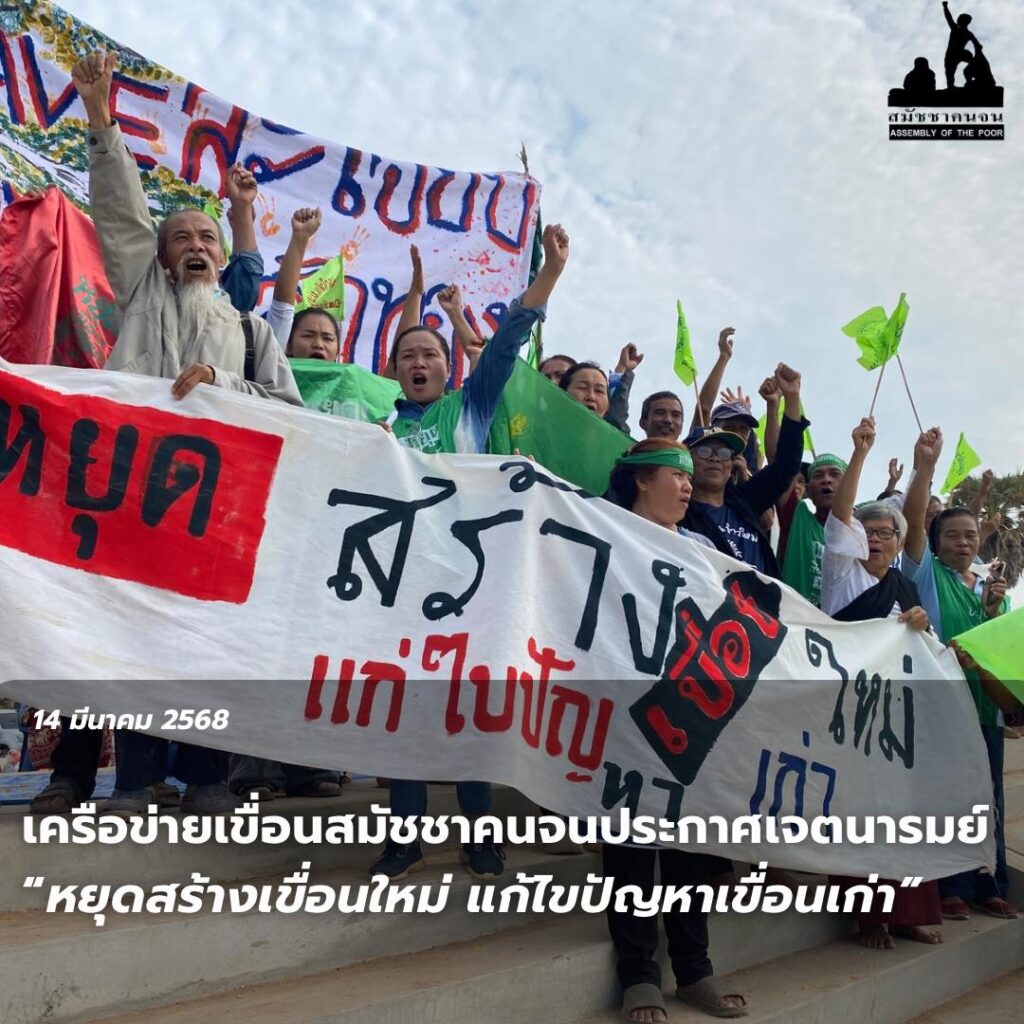
Dam-affected members of the Assembly of the Poor (AOP), a grassroots national network, mobilized actions along the Mun River – a major tributary of the Mekong River – to denounce over three decades of harm wreaked by the Pak Mun Dam and express opposition to destructive dams globally. AoP has organized an action nearly every year for the International Day of Action against the controversial Pak Mun Dam. Funded by the World Bank, the project was also criticized by the World Commission on Dams.
Bringing together diverse people and groups over two days, actions included public forums to highlight community opposition to dams in Thailand and globally, a “baci” ceremony to bless the river, affirmations of solidarity through song, and issuing a statement that declared their “support to those who oppose dams in every corner of the world.”
Piracicaba River, Minas Gerais, Brazil
In Brazil, river defenders used kayaks to deliver a message of global unity and solidarity. Organized by the city of Rio Piracicaba, participants kayaked down the Piracicaba River to the city center, where they were welcomed by the marching band, students from the Córrego São Miguel Civic Military School, and locals who embrace the cause of protecting local waterways. During the event, which was attended by Mayor Augusto and other local leaders, the city’s chief executive highlighted the municipality’s water management practices.
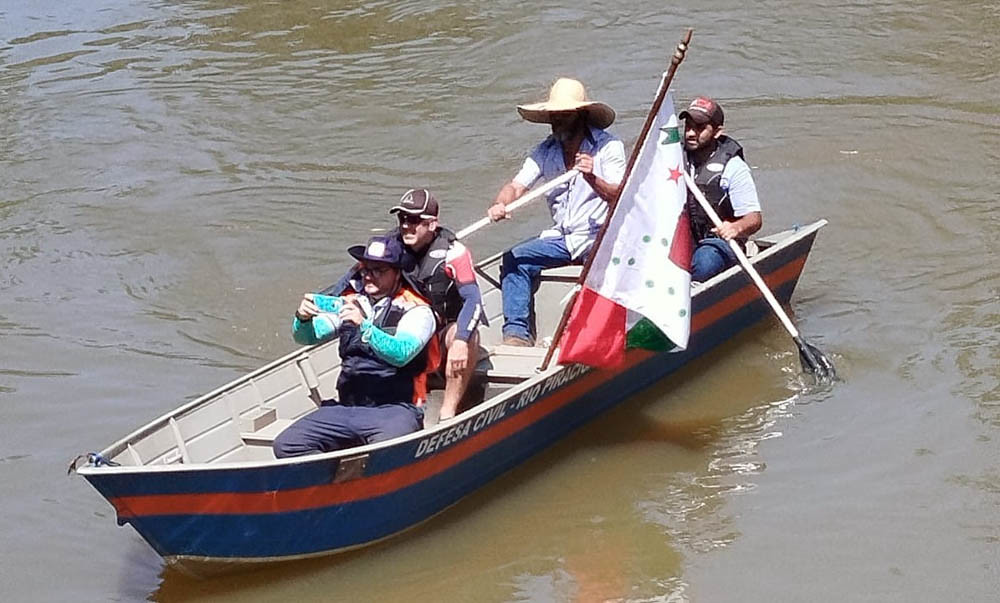
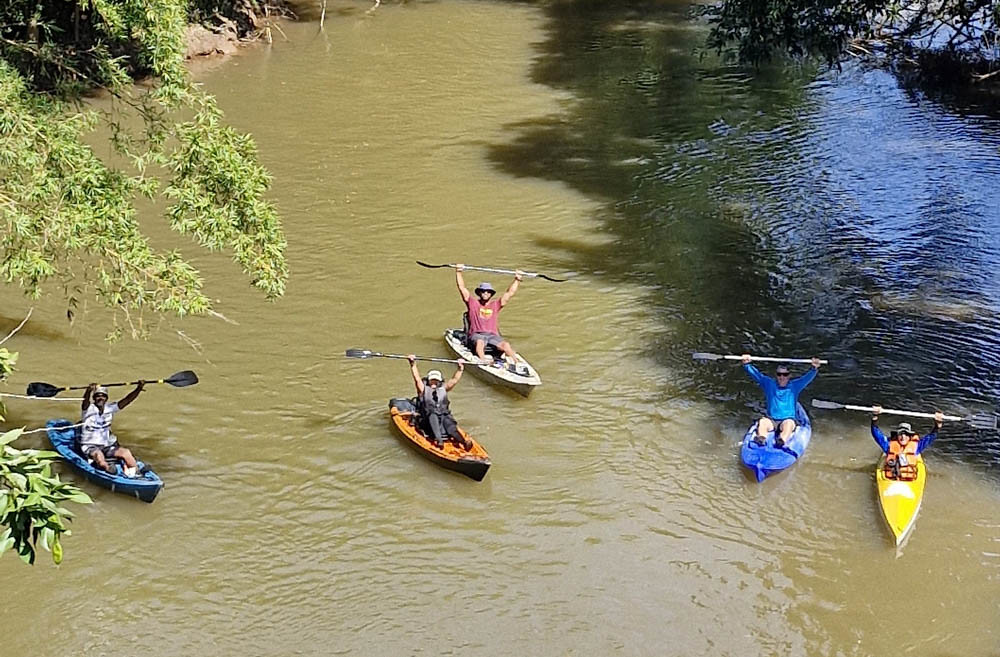
Rivers for the People, Philippines
“Ang ilog ay buhay – rivers are life,” asserted the Dumagat-Remontado communities of Tanay, Rizal, Philippines as they gathered during the Day of Action to protest against the development of the Kaliwa Dam. The mobilization was supported by Kalipunan ng Katutubong Mamamayan ng Pilipinas (KATRIBU), the national alliance of Indigenous Peoples’ organizations in the Philippines, the Bai National Network of Indigenous Women in the Philippines, Sandugo – Movement of Moro and Indigenous Peoples for Self-Determination, along with other local peoples’ movements. In addition to the mobilization, Dumagat-Remontado women convened conversations to highlight their role in defending their ancestral territories, livelihoods, culture, and river ecosystems, all of which are threatened by the development of the Kaliwa Dam.
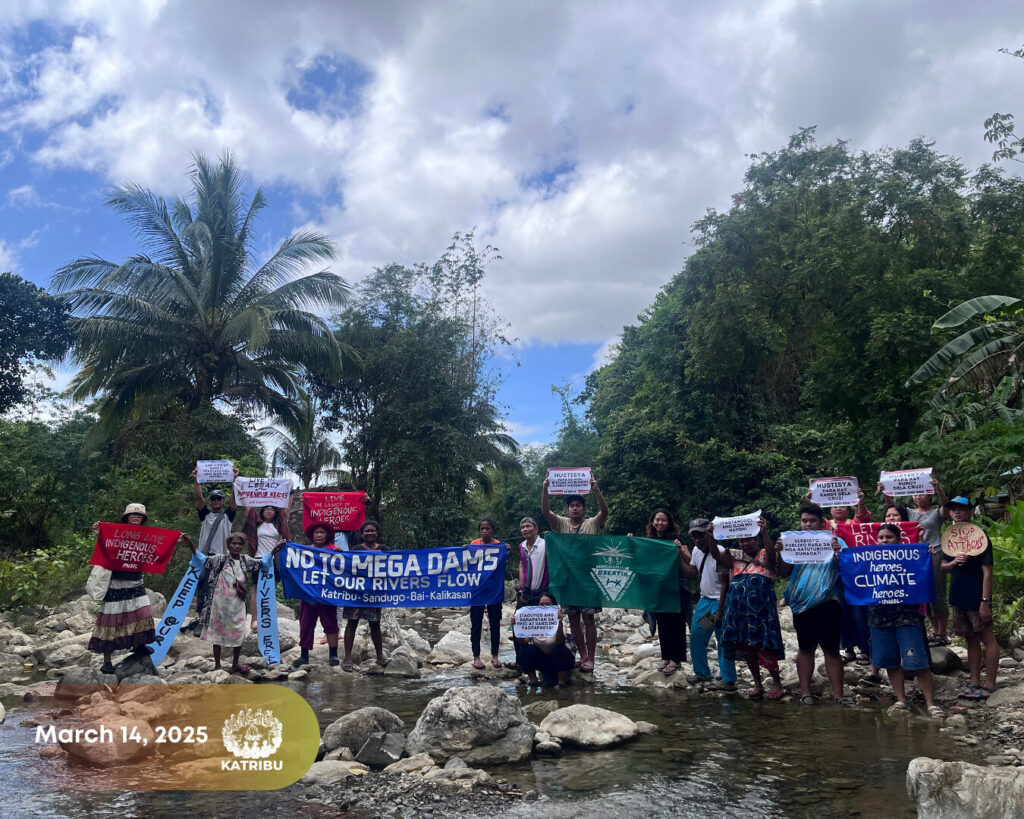
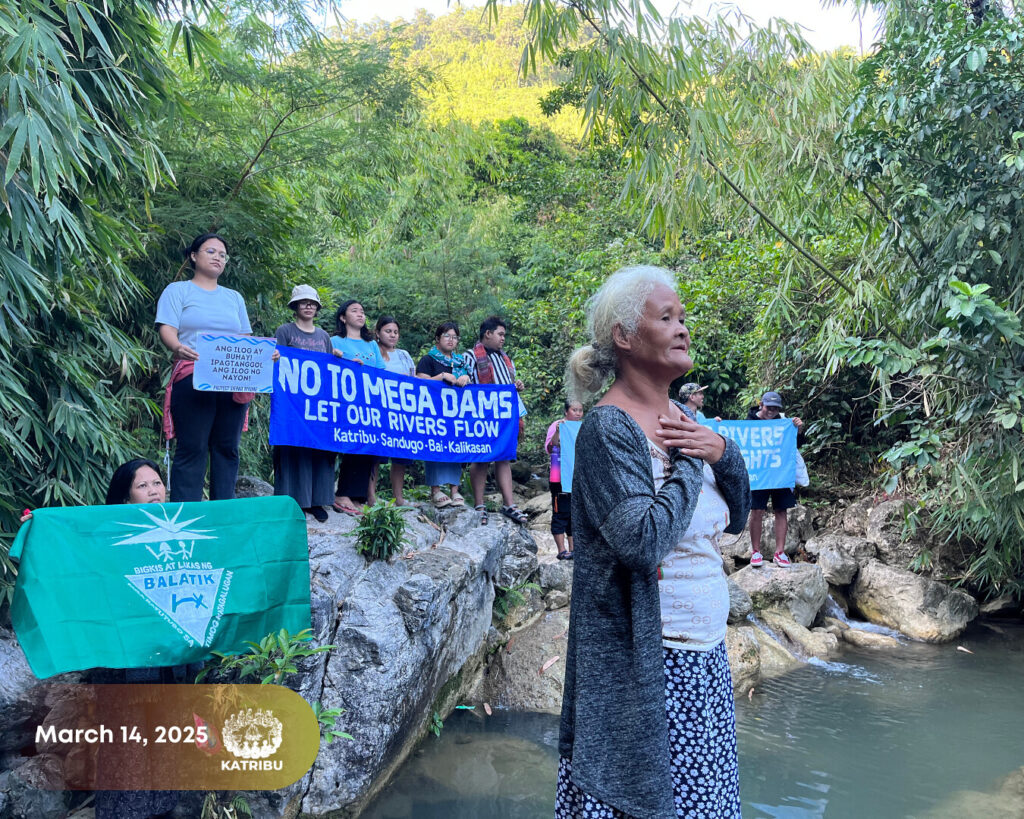
Women farmers raise awareness for water protection in the Democratic Republic of Congo (DRC)
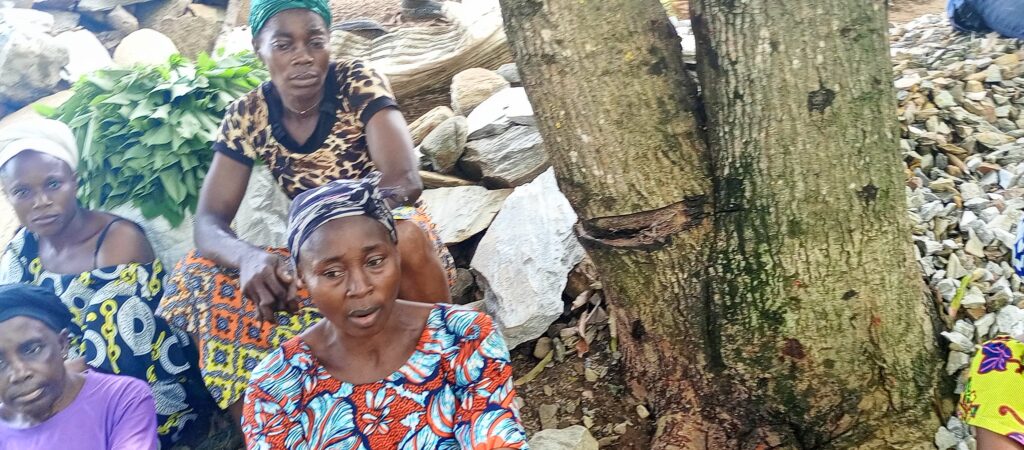
In Mpozo, DRC, members of the Women’s Initiatives for Sustainable Development gathered to highlight the role of water in the Mbamba community. Local experts worry that poor regional water management in the area may soon lead to conflicts between communities and other water users. Community members discussed the importance of water in their work and daily lives, including for the cultivation of crops, breaking stones, digging for sand, and farming.
Salween River, Transboundary Solidarity, Myanmar-Thailand
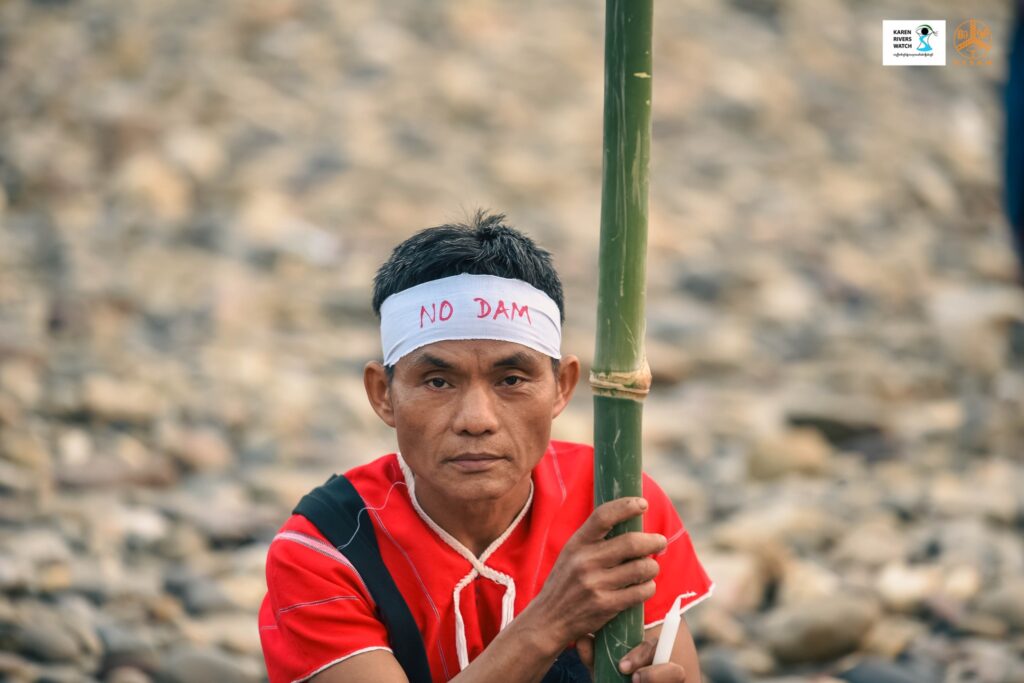
For the first time in 17 years, Salween communities gathered on both sides of the Myanmar-Thailand border on March 14, marking the success of local residents and allied advocates to defend the Salween from destructive dam developments for over two decades, protecting it as one of the longest free-flowing rivers in Asia.
This transboundary action in Sob Moei, Thailand, and the Salween Peace Park in Myanmar was particularly important given the ongoing militarization and war in Myanmar. It brought together youth, women, students, activists, and academic allies from along the Salween and Mekong Rivers and beyond. The last transboundary action was convened in 2008, when Myanmar was also under a military regime – and expressed strong opposition against the Hatgyi Dam.
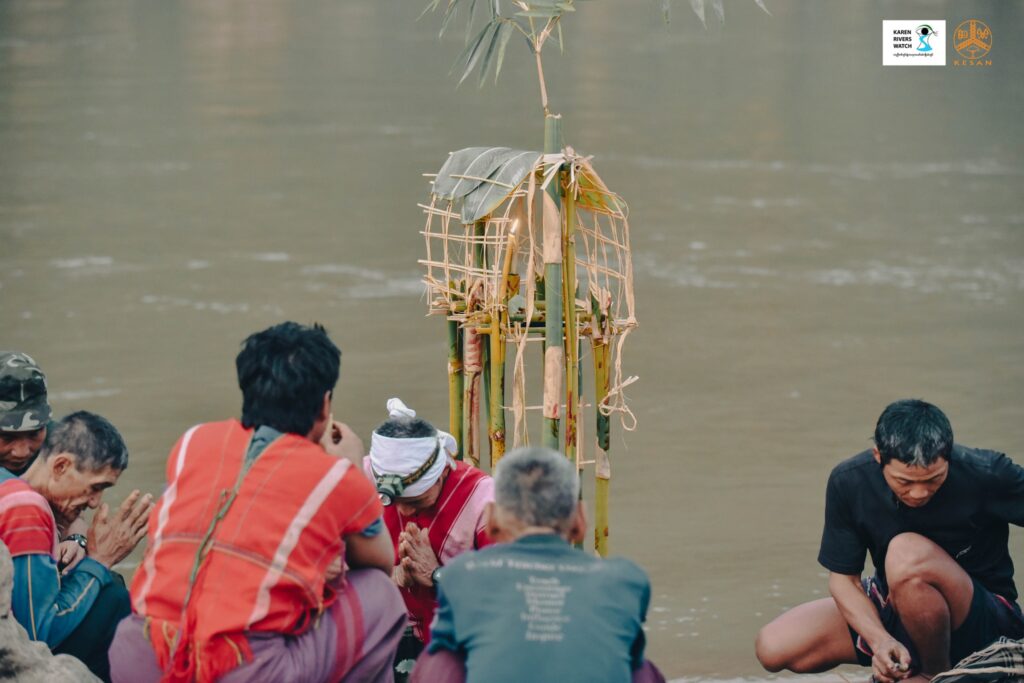
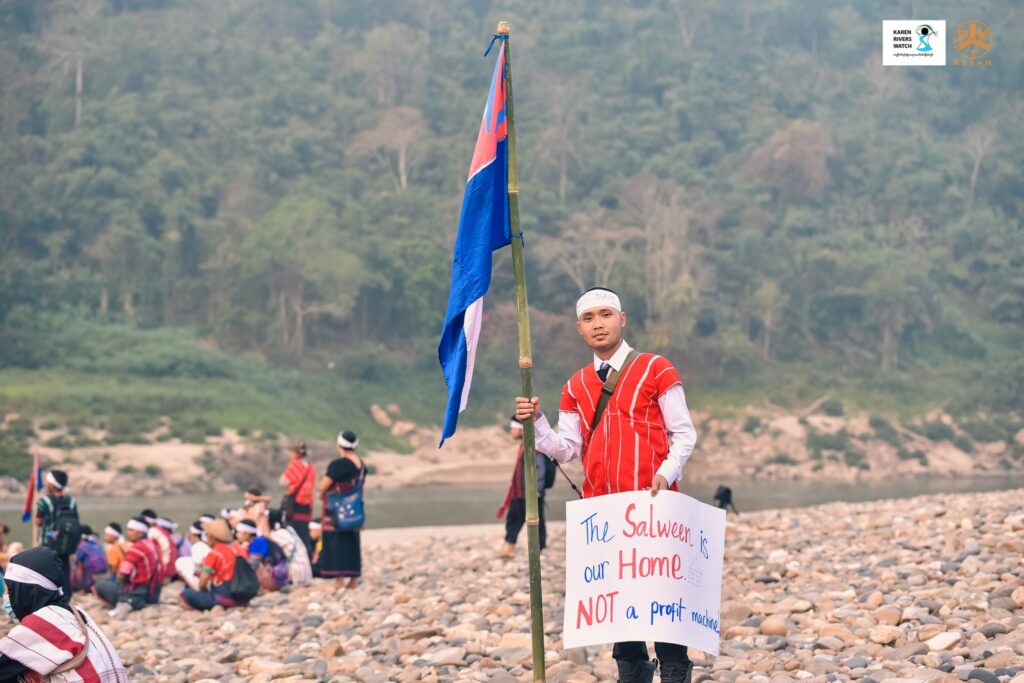
This year’s statement, published by Karen Rivers Watch, emphasizes the critical significance of maintaining the free flow of Myanmar’s rivers and calls for the termination of Salween dam projects and the recognition of Indigenous Peoples’ rights to peace and self-determination.
Thoubal River, India
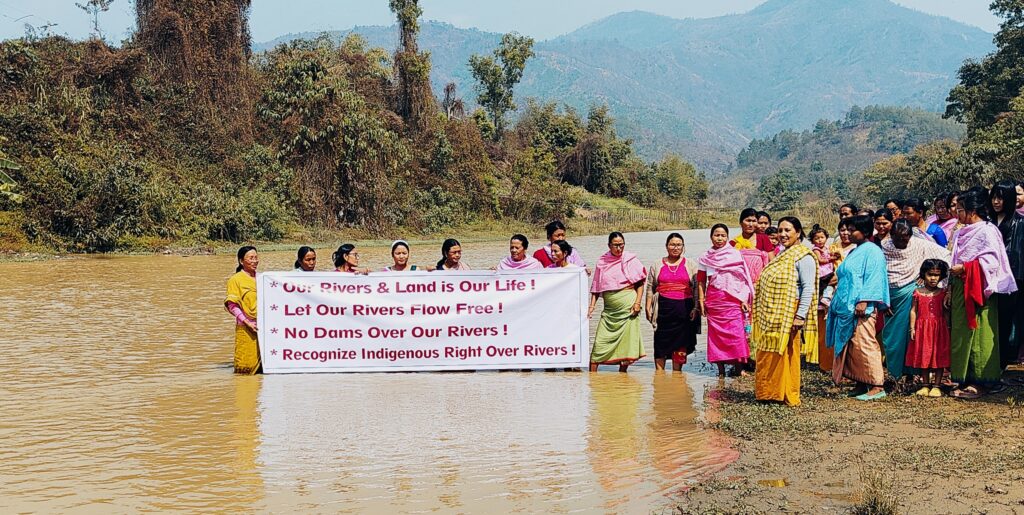
Convened by the Centre for Research and Advocacy Manipur and the Lingjel Leibi VLF, Nungbrung Ngamukhong and the Legal Aid Clinic, Nungbrung, river defenders gathered to raise concerns about increased hydropower activity in Manipur, India. Speakers shared that the Thoubal River, once abundant with fish and snails, and a vital source of freshwater, has become polluted due to the Mapithel Dam, which was commissioned in 2015. Pollution on the Thoubal has severed local communities’ relationship with the river, which once supported their livelihoods.
Ibetombi Nameirakpam from Nungbrung village noted that the dam only unleashes hardship and inconvenience on people. Women and young girls are increasingly subjected to violence as elders and parents are compelled to move outside the village in search of work due to livelihood challenges. There is increased alcoholism among youths due to the loss of livelihood.
Participants noted that for Indigenous peoples, rivers, forests, and land are life. They stressed the need to recognize Indigenous Peoples’ rights over their natural resources and called on the government to rethink all unsustainable development projects affecting the health of rivers, forests, and land and called for the rejuvenation of the Thoubal River and other rivers in Manipur.

